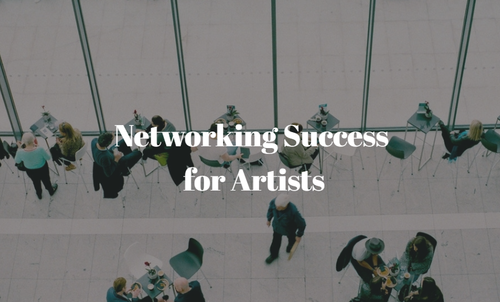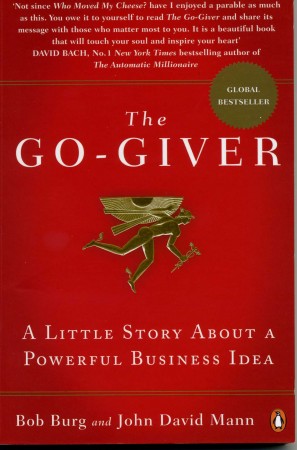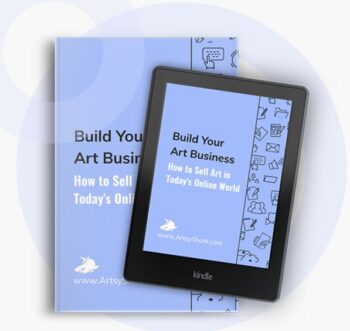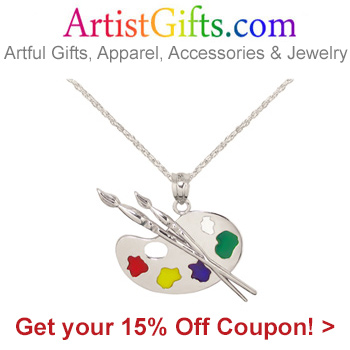An interview with Bob Burg, bestselling author of “The Go Giver” and über-networker, on how artists can start networking their way to success.

AS: Many artists feel they do not have strong business skills. They would rather remain in the studio than do any networking. What first steps would you recommend to help gain confidence?
BB: That is actually true. Not only in terms of artists, but in many professions where there is a special skillset involved. Like artists, many in the healing arts, as well as accountants and others love what they do. They are very good at it, and, if they could, they would do it all day (and even night) without complaint. They would be happy if they never had to worry about bringing new business through the door.
However, bringing in the new business is a part of any business. Fortunately, when truly understanding what networking is (and what it isn’t) you learn that not only is it not particularly difficult. It’s actually fun and adds to the completeness of your work.
With that in mind, I define networking as: The cultivating of mutually beneficial, GIVE and RECEIVE, win/win relationships. When done correctly, you focus on the other person, their wants, their needs, and their desires. You’ll accelerate the number of high-quality people you’ve earned the right to speak with about your product or service, either directly or indirectly via referrals and introductions.
One thing is very important to remember, however. You don’t do this with an “agenda to get” but with a genuine desire to provide value to others. People respond to this and are then much more open to you, what you do, and very willingly and excitedly connect you with others you might also be able to bring value to through your art.
The key is: “All things being equal, people will do business with, and refer business to, those people they know, like and trust.” When you’ve genuinely developed these types of relationships with people, you’ve basically developed an “army of personal, walking ambassadors.” Doors are opened. The people most others find so difficult to meet are right in front of you.
AS: An artist may want to obtain referrals for commissioned paintings (B2C) and also obtain introductions and referrals to art gallery owners to discuss representation (B2B). Would you suggest different networking strategies in these two circumstances? Could you explain?
BB: Well, part of it is finding out where the people are who can either utilize your services directly or introduce you to those who can. The networking strategies themselves never change. You are still meeting those people. Through utilizing a system for creating “know, like and trust” relationships, place yourself in a context where you’re earning the right to meet the people (in this case, the buyers) you want to meet.
AS: Self-promotion can be tough for some artists. As an author and speaker, you also have a work product that is personal. What is your experience in separating your ego from talking about your books and appearances?
BB: If, in the above question, you are defining “ego” as something that will be hurt by people not embracing you and your work, then it’s very important to be able to effectively deal with that. I’ve never met an artist (or anyone, in any business, ever) whose every work was embraced by every person who came across it. Just the opposite. Most people have to deal with rejection on a daily basis. The first thing is to understand that this is simply part of the process of success. As my friends, Andrea Waltz and Richard Fenton, authors of the magnificent book, “Go For No” point out, “*Yes* is the destination, *No* is how you get there.”
By the same token, self-promotion does not need to be (and should not be) boastful or obnoxious. Self-promotion is simply a way of positioning yourself in the market in order to attract the interest of those who are most likely to resonate with you and your work.
AS: What tips do you have for building strong win/win relationships after you have made the initial networking connection?
BB: When first meeting someone, ask them questions about them and their business. This does two things:
1. Allows them to talk about themselves and what they do, which is what they want to talk about. It will actually go far towards their eventually becoming interested in you and what you do.
2. Takes the pressure off you.
Don’t concern yourself with promotion right now. Remember, in developing the “know, like and trust” relationships, it’s not about you. It’s about them! Ask questions such as, “how did you get started in the ______ business?” And, “What do you enjoy most about what you do?” Ask what I call the one key question, which is, “How can I know if someone I’m speaking with would be a good connection for you?” (Here’s a list of these questions. Remember, you’ll only ask 2 or 3 of these questions during any one conversation.)
If appropriate, introduce them to someone at the event that you know who they don’t.
As follow-up after the event, write a brief, hand-written thank you note.
Stay in touch in a way that is not intrusive or invasive but provides value to them. (Visit my blog and in the section, “Endless Referrals Video Briefs” you’ll see some suggestions.)
And, whenever possible, introduce good people to other good people. Have fun with the process. You are expanding your world and allowing yourself to put your art into the hands of many, many more people!



Thank you, Carolyn. So very honored to be featured on your page!!
My pleasure, Bob. I am a longtime fan of yours and proud owner of your books!
🙂 🙂 Gratitude to/for you!!
Great article! Incredible content. I LOVE the practices outlined for cultivating a network and community. I can’t tell you how often I run into and have to work with artists and arts professionals who are “I, ME, MY” with a side dish of what can I get from you. Symbiosis means WE.
Terri: Thank you. Greatly appreciate your kind feedback!
some really great, sound advice…and i agree fully that networking can be fun…i love meeting people on-line who are interested in my art. when i meet people in person at art receptions, that’s a bit harder for me…not quite comfortable with it but i do follow your advice about always asking people about themselves. mainly because i am interested and secondly i think that some artists come off as egotistical when they prattle on about themselves and their art…had that experience lately and it leaves you with a bad taste in your mouth!!!
Kathryn: Much appreciated! Terrific that you focus on them. I know they appreciate it and helps them to become more comfortable with you, and open to you!